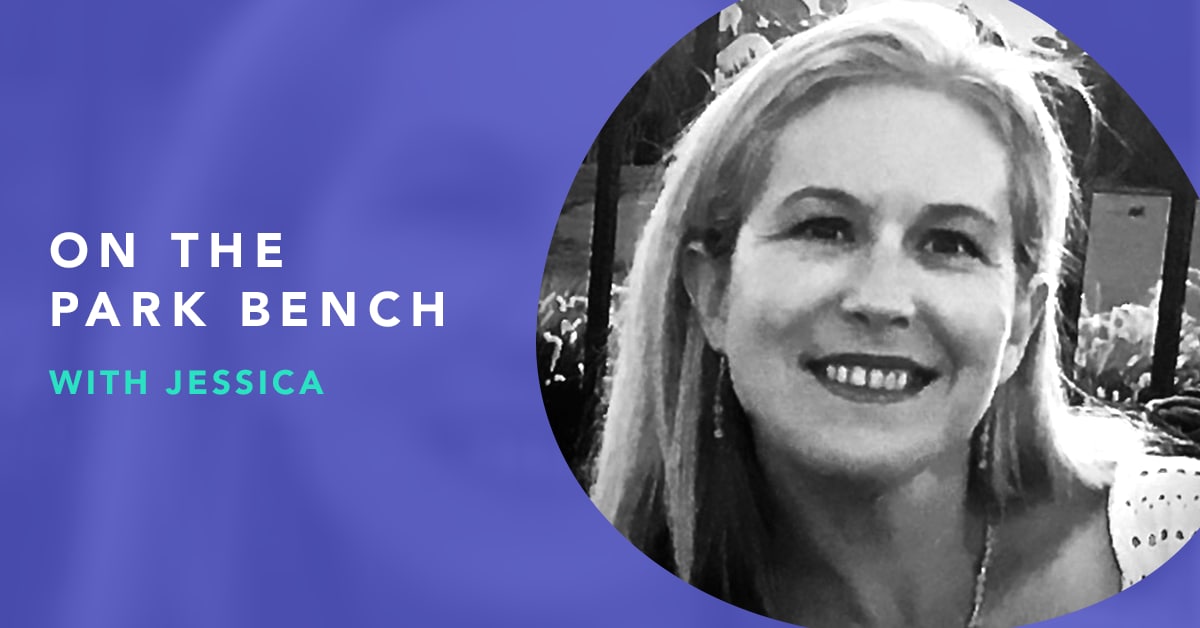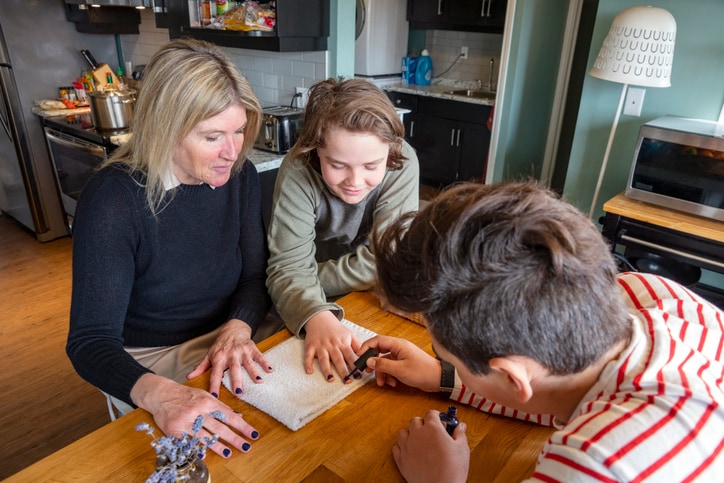Jessica G.’s license plate says it all: M Poppins, a reference to Hollywood’s most famous nanny, Mary Poppins.
It’s a fitting comparison. During the course of her 23-year career in child care, Jessica’s has owned her own daycare, taught preschool, provided therapeutic services to autistic children in school and home settings and, for the past 14 years, worked as a nanny in the San Francisco Bay Area.
She is so devoted to her job that when one of the families she works with had a newborn who was hospitalized for several months, Jessica became a certified postpartum doula to better support that family through the ordeal.
“We were unsure if the baby was going to come home with support or not,” Jessica said. “I really wanted to make sure I was well informed of what to expect.”
Jessica works about 50 hours most weeks, between three regular families. Her approach, she said, is “child-led,” meaning she looks at children’s interests and what they need developmentally, and plans activities that take both into account. For example, one little girl she works with loves to cook, so they often bake together.
“We’re making muffins, and I’m building in math and measurements and recognizing ingredients,” Jessica, 41, said.
Baking, she said, also serves as a confidence-building exercise for the little girl, who feels a keen sense of accomplishment when the sweets come out of the oven.
One key to her success is setting clear expectations with her employers.
“I put everything in black and white because parents will push you if you don’t,” said Jessica, who has signed contracts with all of her regular families. “Parents sometimes think a nanny does everything, including scrubbing toilets, and that’s not what I do.”
Before taking on any new long-term client, she insists on a five-step interview process to make sure it’s the right fit for all parties involved. There’s a phone interview and an in-person interview with the parents. Then there’s three paid “working interviews,” during which she can get to know the children.
Once she takes a job, ongoing communication between parents and caregivers is essential. At the end of each shift, Jessica gives parents a brief overview of the day’s activities and alerts them to any issues that warrant further discussion. “I’ll say, ‘We did have some discipline issues. Do you want me to email you, or do you want to talk later on when the kids are asleep?’”
Jessica is well suited for this work, but said it’s not for everyone.
“A lot of people say, ‘I could do that,’” she said, but they don’t understand what it’s like to work every day in someone else’s home, and with their children. “Unless you have a passion for child development, you are doing a disservice to the parents and the children.”
It’s that passion that keeps Jessica going. Her advice to child care providers just starting out: “Be fun and silly, professional and punctual. Don’t be on your phone all the time; show the family that you’re there to do your job.”
Mary Poppins would approve.
Read next: On the Park Bench with Martha






